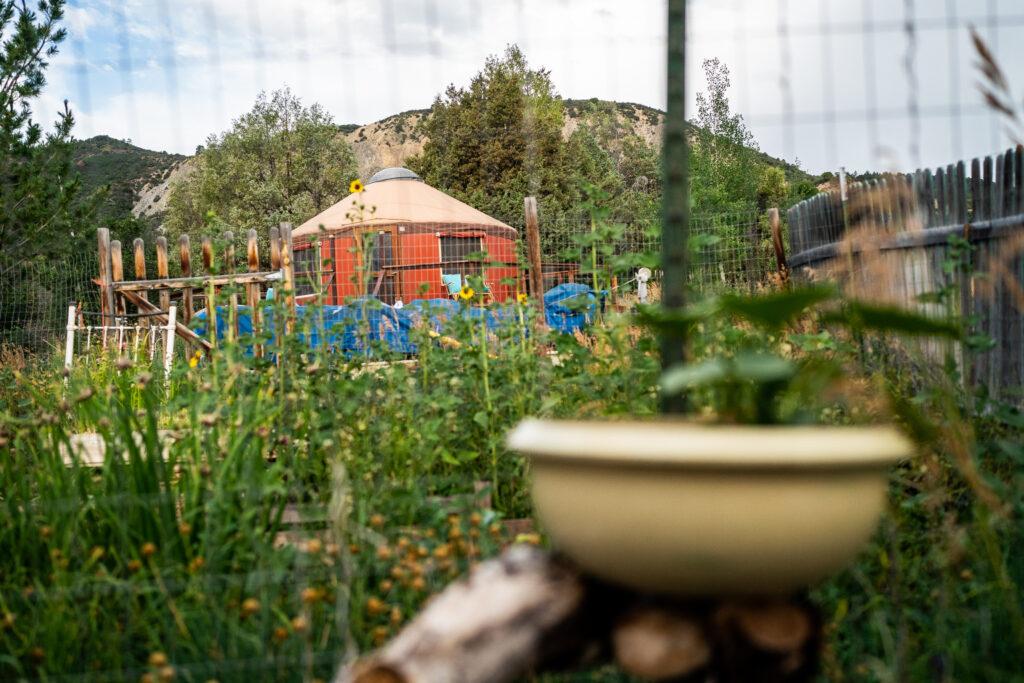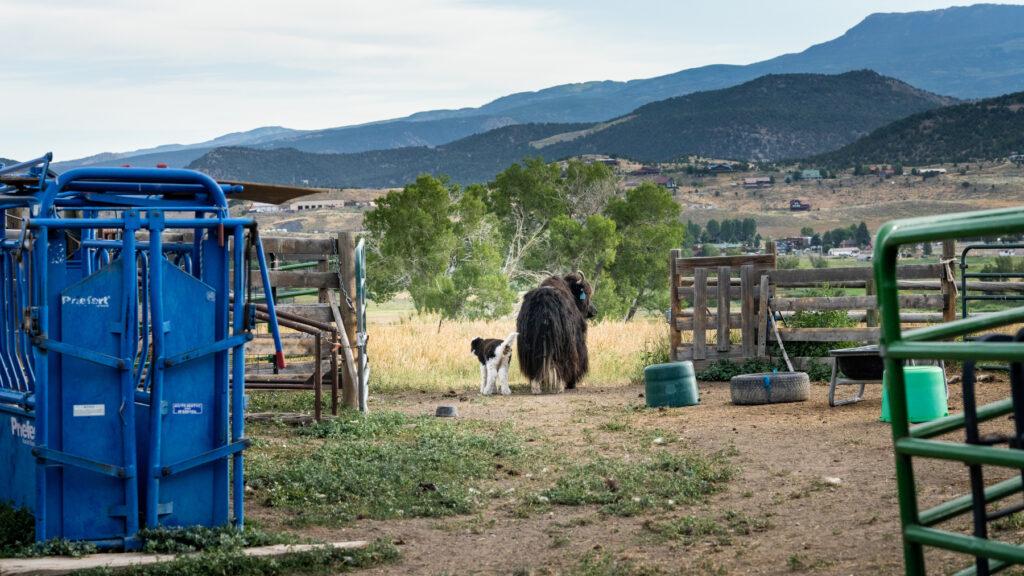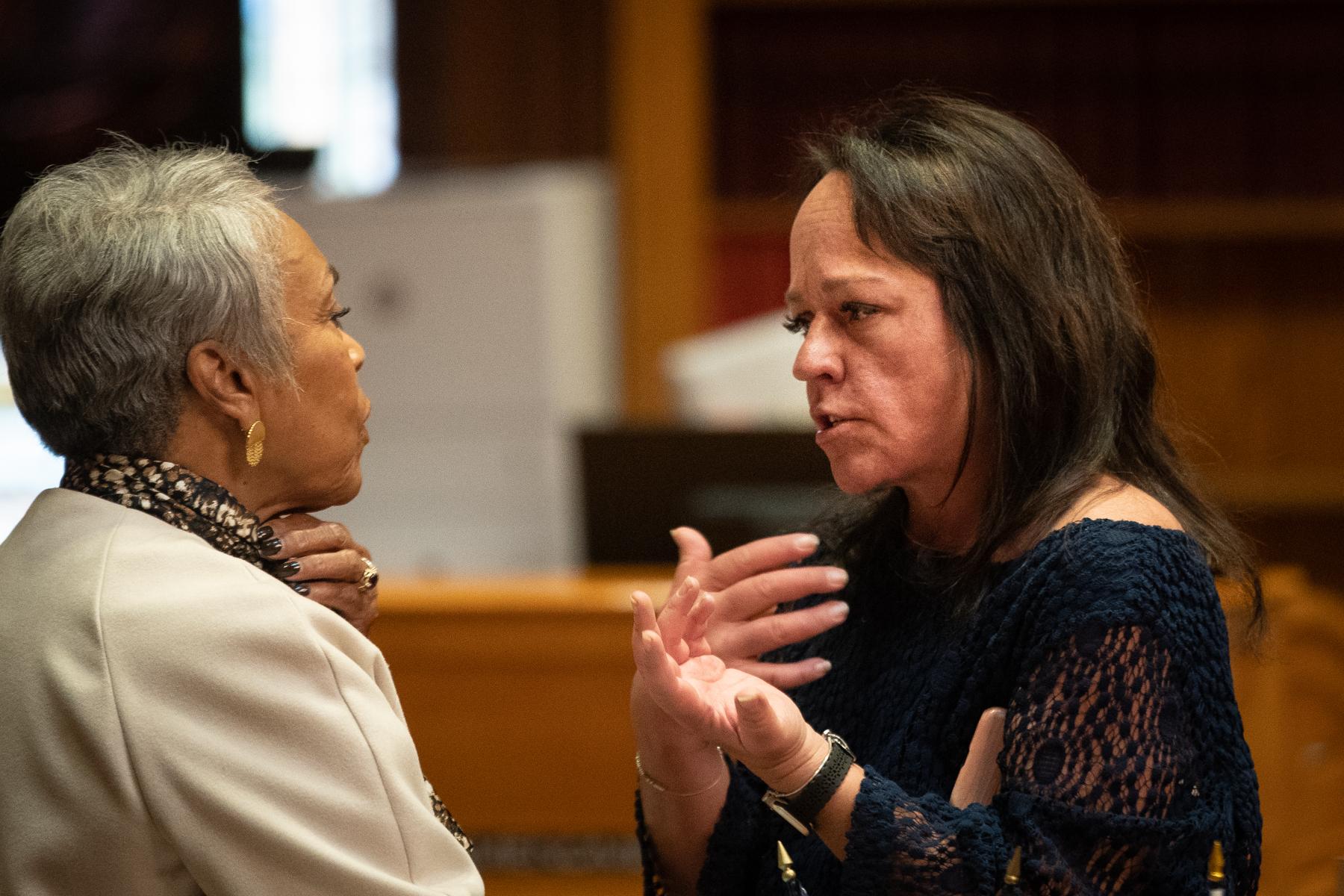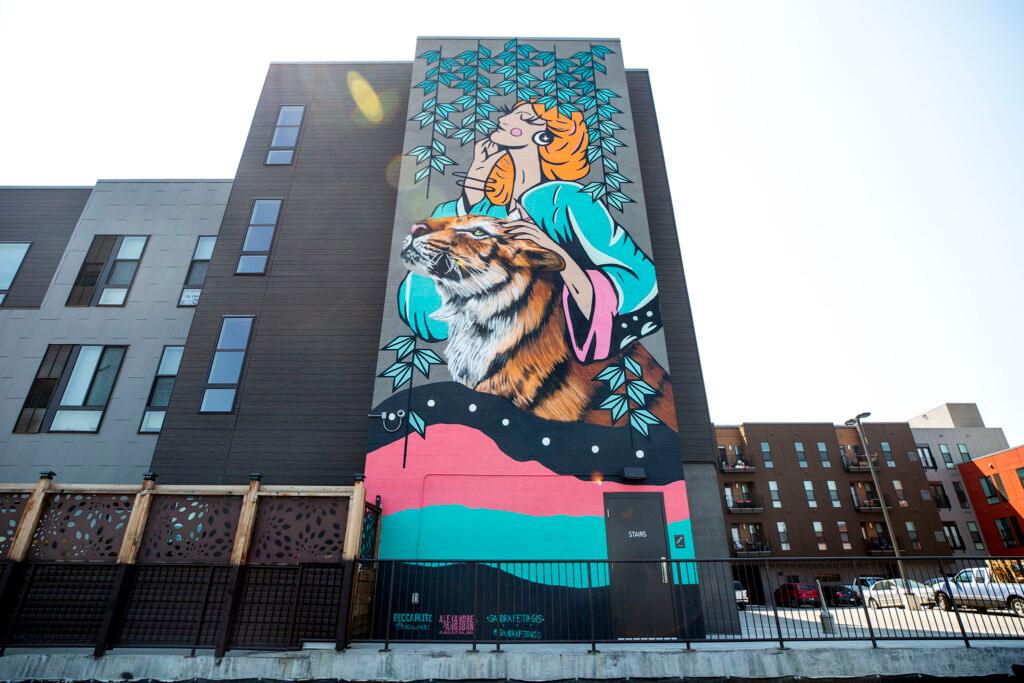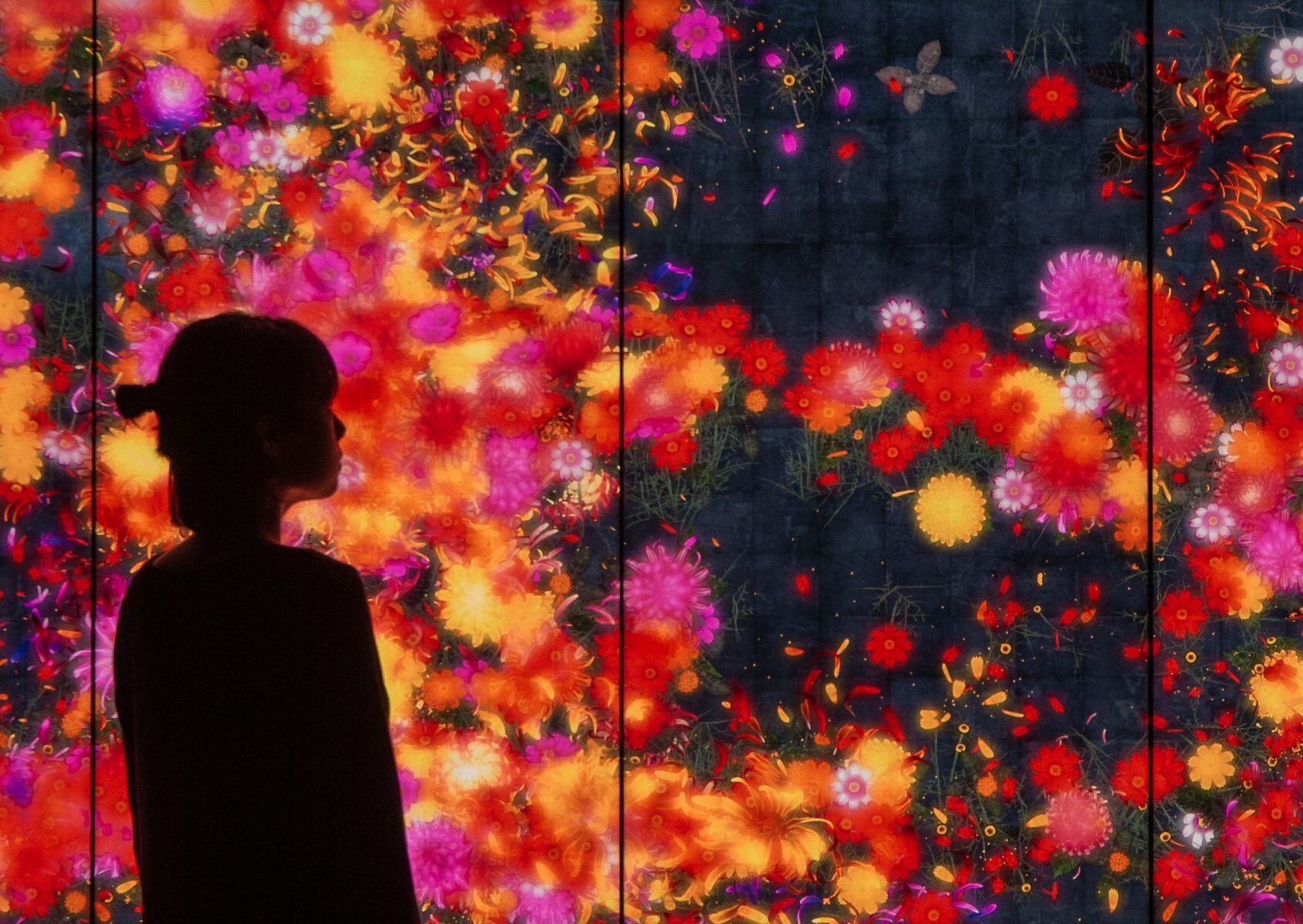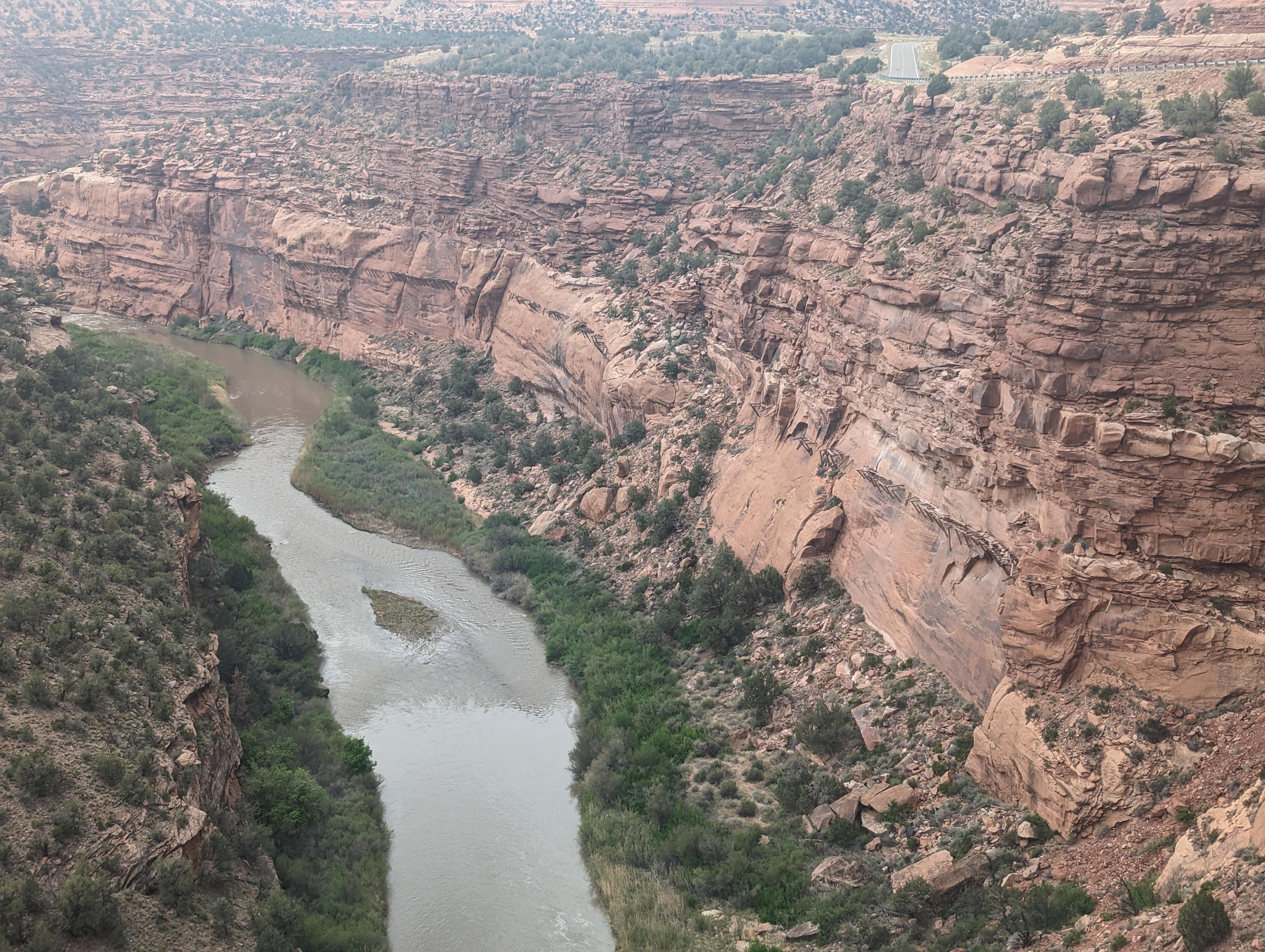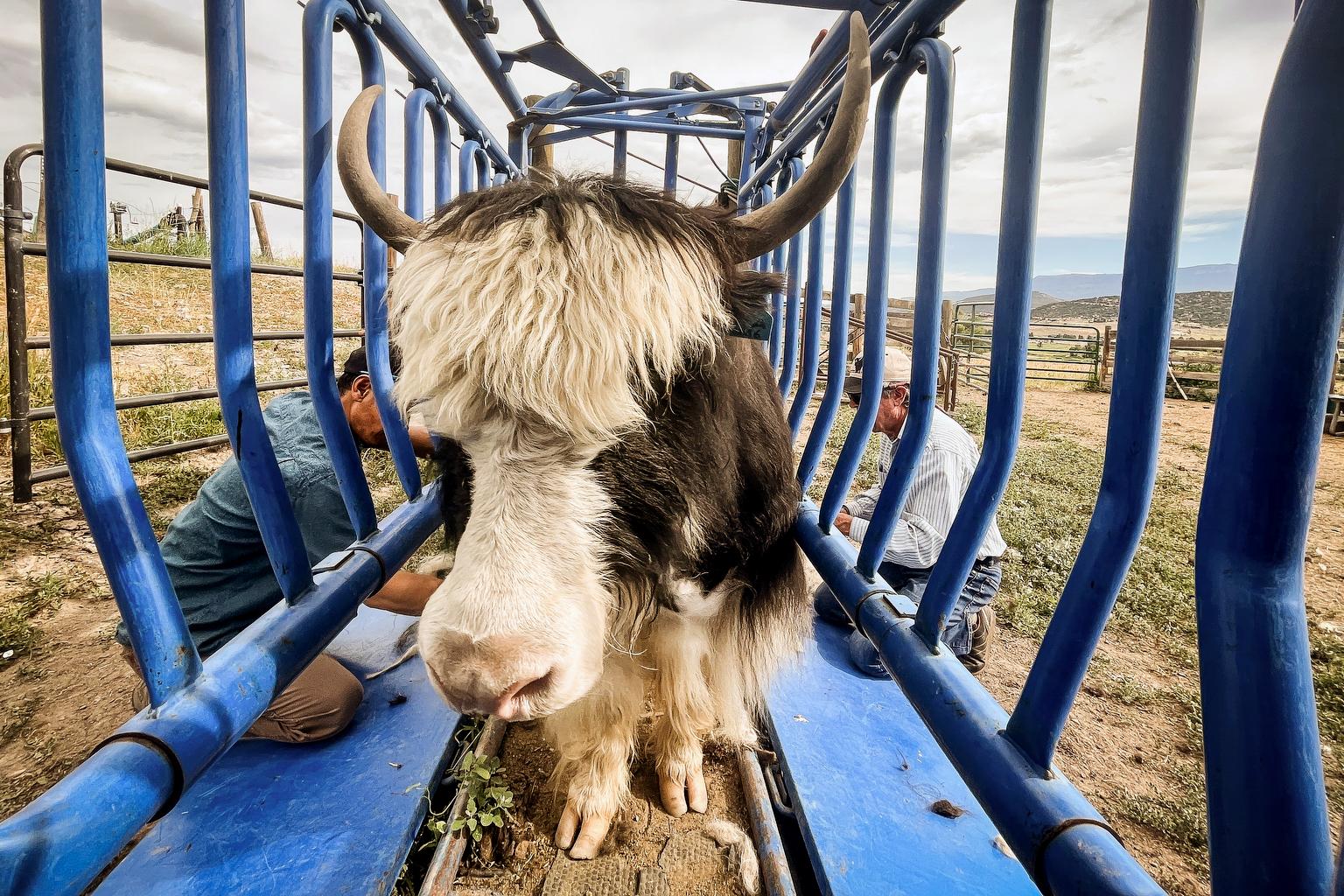
Imagine the lovechild of a cow and a woolly mammoth.
Yaks are very cute and very hairy, with long fur draped over them like a bushy fringe jacket and u-shaped horns — yes, even on the ladies — pointed up to the sky.
Smiling Buddha Yaks in Ridgway is home to about 30 mamas, babies and bulls. Namgya Sherpa loves to look out on the herd, lounging in rugged pasture, craggy mountain peaks in the distance.
“If you have a bad day or something and if you see those little ones, you know, it's like a kind of meditation for you,” said Namgya, who’s part of the Sherpa ethnic group, which doesn’t typically use last names.
On one recent summer morning, he was helping brush out the adults, including Sita, with a big white mop of hair flopped over her eyes. Namgya’s adopted parents, the owners of the ranch, bribed the yak with feed spiked with molasses as they combed out her knots.
“You’re a pretty girl, Sita!” Ruth Hidgon called out as her husband, Peter Hackett, patted the yak’s shag carpet of a body, fur almost touching the ground.
“Look at how fluffy that coat is now instead of matted,” he said, impressed.
The ranch is about a decade old, but its origins go back to the 1970s, when Hackett was a volunteer doctor in Nepal. He saw how enmeshed the yak was in Sherpa life — used to transport goods and people, its coarsest hairs used to make rope, its milk used in dairy products. A completely all-purpose creature.
“So I was just totally entranced by the culture and the relationship with this animal,” Hackett said.
He kept visiting Namgya’s hometown, a tiny place perched at 14,000 feet of elevation, which Namgya describes as “maybe less than 10 houses,” two days’ walk from Everest. Hackett opened a clinic there and eventually befriended a Sherpa couple, Mingma and Namdu. They had two daughters, Pasang and Yangee — and a son, Namgya.
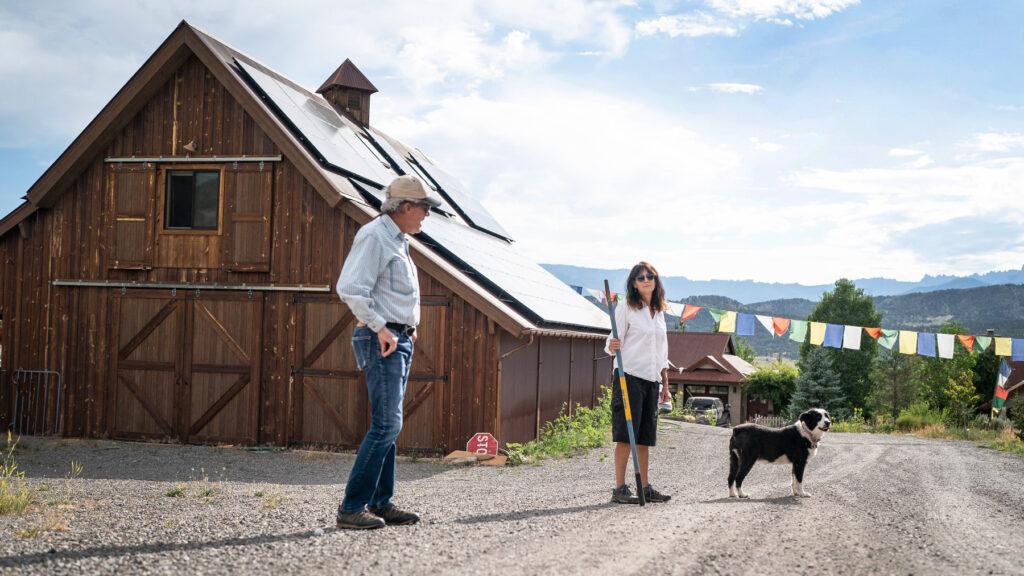
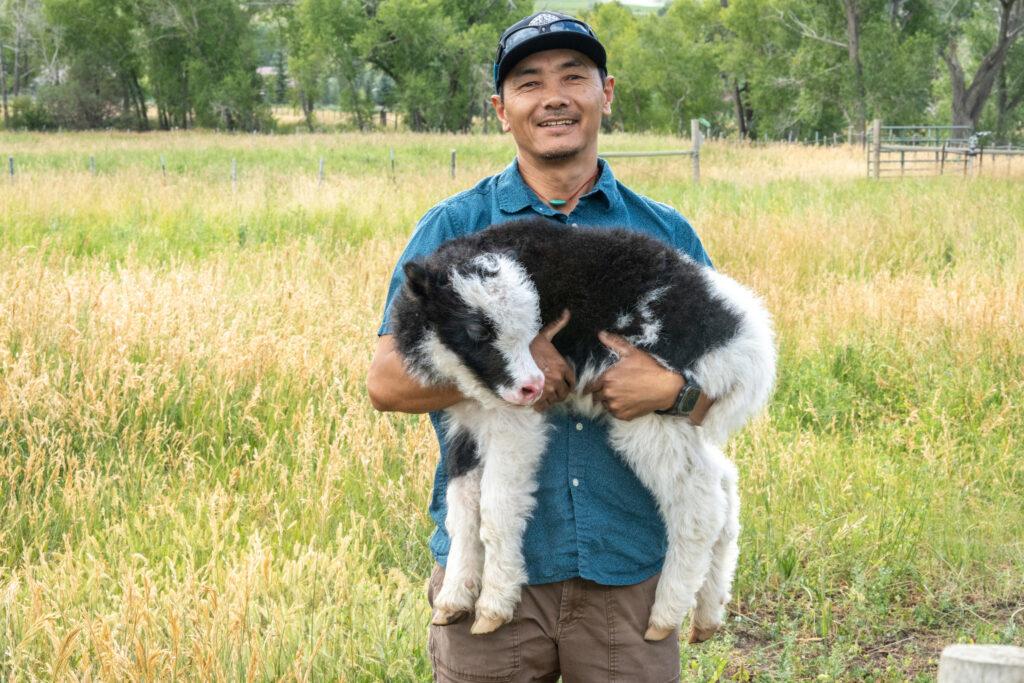
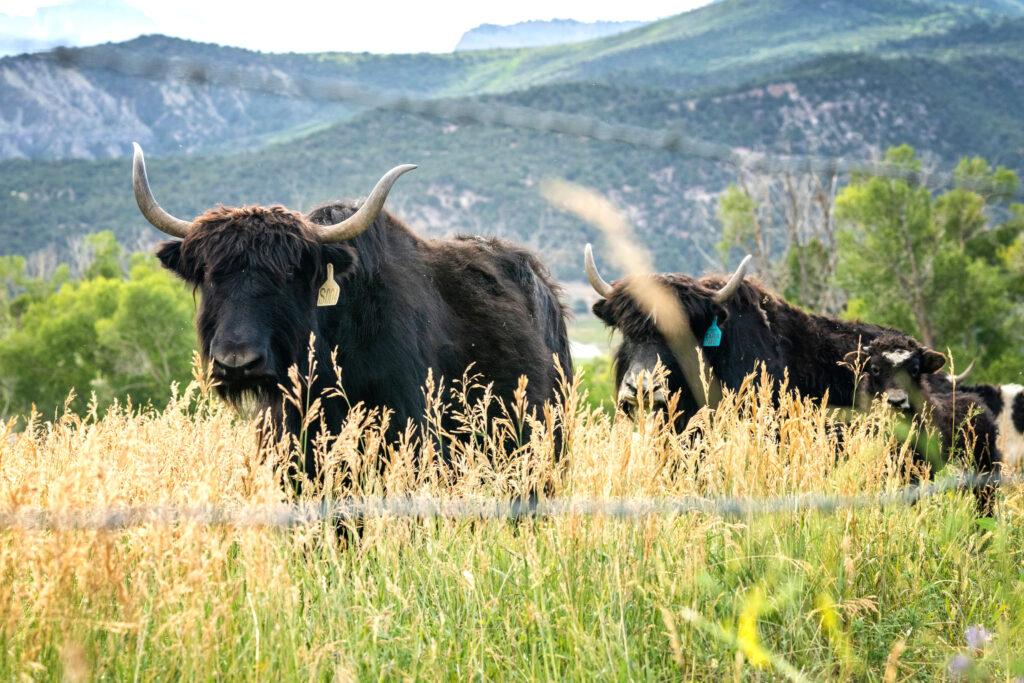
“He was a good friend of my parents, and after my parents passed away, he helped us to go to school,” said Namgya, now in his 50s.
When his parents both died in the summer of 1981, Namgya and his sisters studied in Nepal with Hackett’s help. Later, Hackett helped them all come to the United States.
“He did everything for us,” Namgya said.
In the decades that followed, Hackett found part of his heart was still in Nepal — and with its signature animal.
“I’d always wanted yaks, and more exposure to yaks and interested in yaks,” Hackett said. “I'd always go to see yaks at any zoo I went to.”
And then one day, when he was visiting Alaska, he and Higdon found each other — your typical meet-cute on the highest mountain peak in North America.
“We met on Denali at 12,000 feet,” Hackett said.
He was coming down, she was going up.
“Kind of meant to be, I guess,” Higdon added. “Fated.”
She was also a doctor, had also spent time in Nepal, and had also fallen hard for yaks. At the time the two met, she was running a business where she’d hike into the wilderness with clients, with yaks as their calm companions and pack animals, more nimble than cows and far heartier. She remembers how it felt to put bells on them which would ring across the unpeopled hinterland.
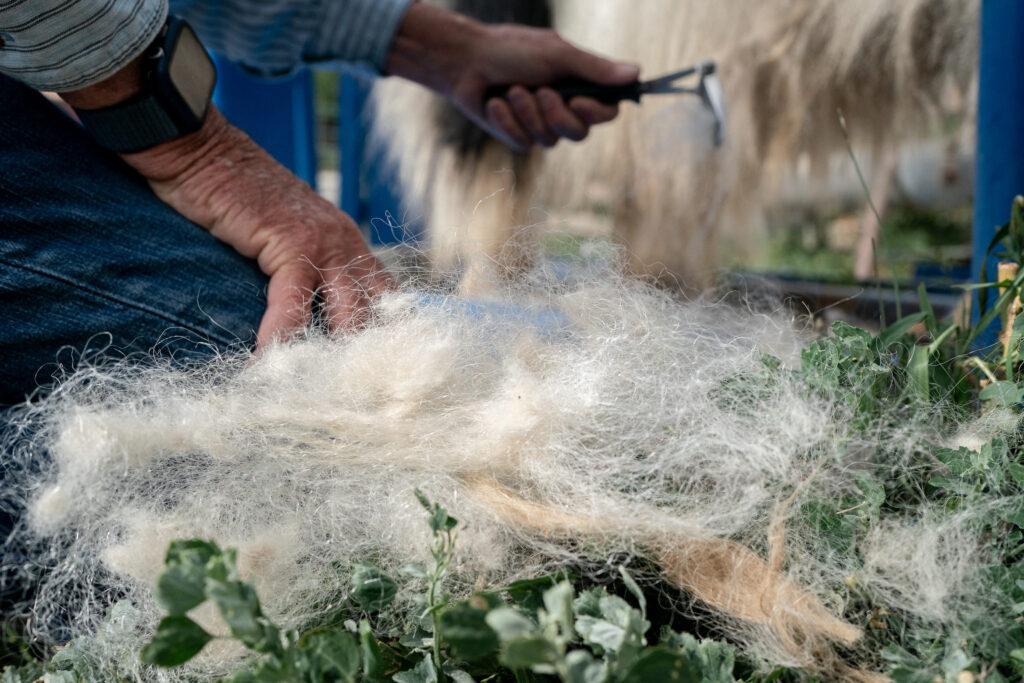
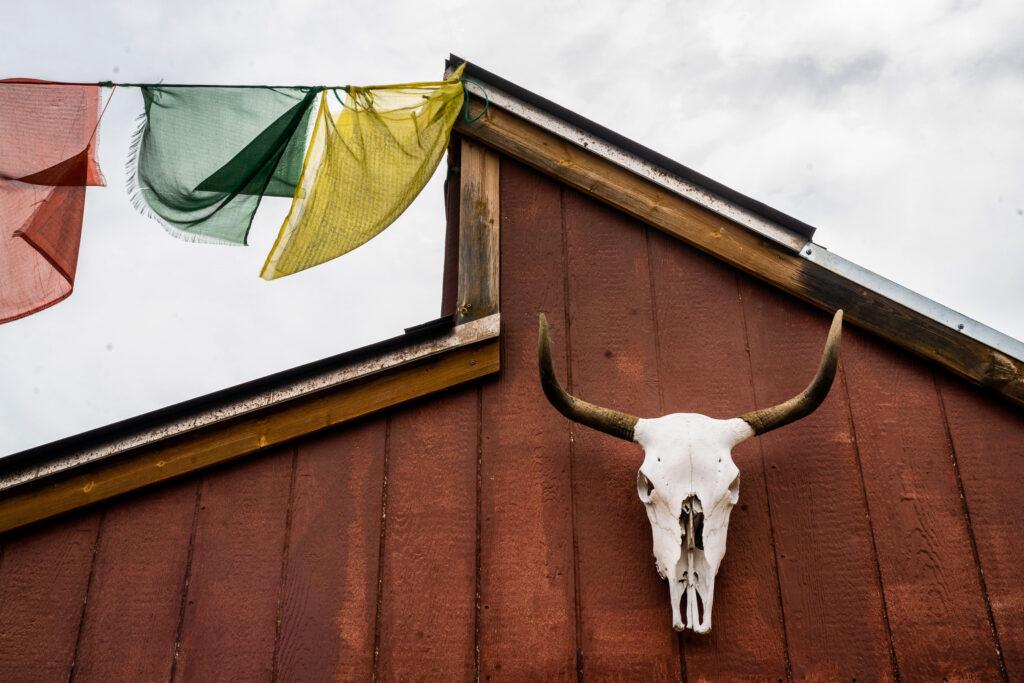
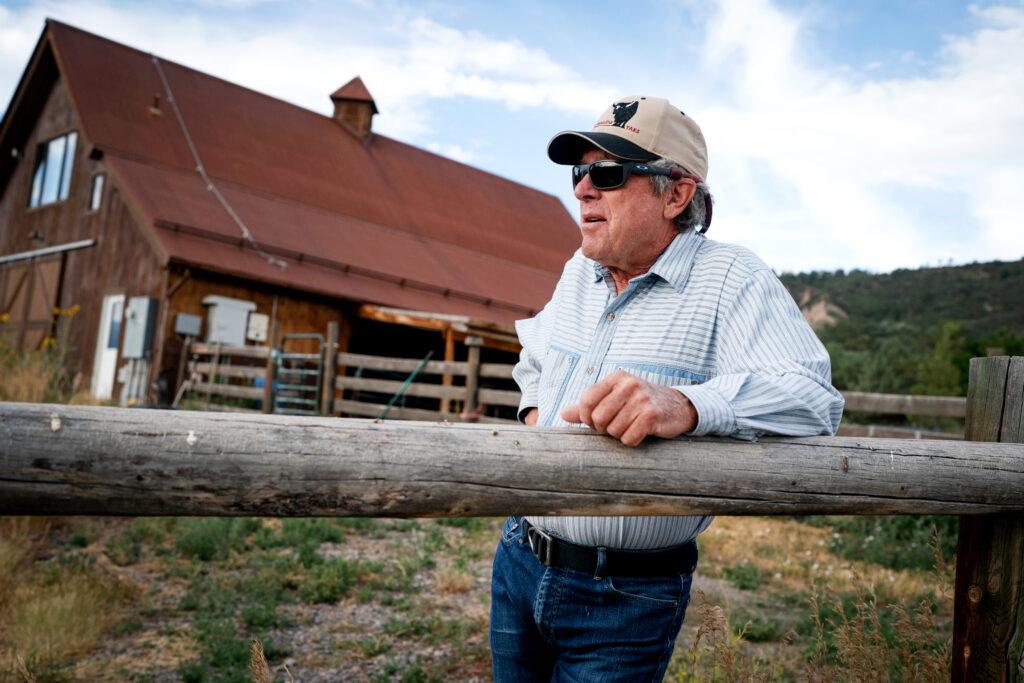
“Just loved walking with the yaks,” she said. “It's just a really special experience.”
Pretty soon, she fell hard for Hackett too, with one condition.
“I said: ‘I have to have yaks,’ so we found some.”
Now, it’s their life. Smiling Buddha Yaks is one of dozens of yak ranches across Colorado: in Montrose and Mancos, Crawford and Colorado Springs. While some focus on the animal’s rich milk and lean meat, here it’s all about breeding, making fluffy, fuzzy babies that look as much like teddy bears as calves.
That morning, after their moms were brushed, the duos lumbered and sprinted into the sweet shade of scrub oak, the babies head-butting their mothers’ udders to coax out more milk.
Higdon and Hackett say they can watch this kind of scene for hours. “Yak TV,” they call it.
“Well, I certainly never would've guessed I'd end up here,” Hackett said, chuckling. “But it all kind of makes sense as a natural progression.”
It has just felt right for the couple — and their adopted son. While Namgya’s sisters have opted for lives in New York and Grand Junction, Namgya said he wants to stay right here with his wife and son. Someday, this is where he wants to retire.
“It feels like back home, Nepal, you know,” he said with an easy laugh.
He’s at home in the mountains, at home with the yaks.
